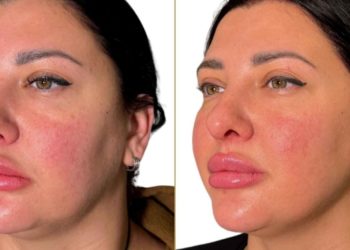Your Skin Health: An Introduction
Our skin is a vital organ, and just like our heart or lungs, it requires professional care to maintain its health. If you’re seeking a holistic approach to skin health and radiance, it’s crucial to delve inside the walls of a dermatology clinic. At these specialised medical establishments, expert clinicians offer comprehensive services that address a wide array of skin conditions, from mild irritations to severe skin disorders.
The Dermatologist’s Role
When it comes to the realm of skin health, a dermatologist reigns supreme. Dermatologists are medical experts with specialised training in diagnosing, treating, and preventing conditions related to the skin, hair, nails, and mucous membranes. A Dermatologist in London, for instance, might see a wide array of cases, from typical skin conditions like acne and eczema to more complex disorders like melanoma and vitiligo.
Dermatologists not only focus on treating specific conditions but also work on improving the overall skin health of their patients. They provide expert advice on the best skincare regimens, recommend appropriate cosmetic treatments, and guide their patients towards lifestyle changes that promote healthier, more radiant skin.
A Peek Inside a Dermatology Clinic
Visiting a dermatology clinic might seem intimidating to some, but knowing what to expect can significantly alleviate any worries. Here’s a glimpse into what a typical visit to a dermatologist might look like.
Comprehensive Consultation
Upon stepping inside a dermatology clinic, you’ll usually be welcomed by a friendly staff who will guide you through the initial paperwork. Your first appointment often involves a comprehensive consultation where the dermatologist learns about your skin’s history, lifestyle, diet, and current skincare routine. This detailed discussion allows the dermatologist to understand the factors affecting your skin health and develop a tailored treatment plan for you.
Examination and Diagnosis
After a thorough discussion, a physical examination of your skin is conducted. This process can vary depending on your specific skin concern. It may involve close inspection under a special light, skin biopsies, or patch tests for allergies. Using this information, your dermatologist can make an accurate diagnosis and provide you with the most effective treatment options.
Treatment and Aftercare
The treatment options available are diverse and depend on the nature of your skin condition. They may include medication, laser treatments, minor surgical procedures, or cosmetic procedures like fillers or Botox. Your dermatologist will also discuss the importance of aftercare, which often includes protecting your skin from the sun, maintaining a healthy diet, staying hydrated, and following a specific skincare regimen.
Dermatology and Radiant Skin
One of the significant aspects of dermatology is its focus on aesthetic improvement alongside treating skin conditions. Dermatologists are well-versed in enhancing your skin’s appearance, making it look healthier and more radiant. They can advise on treatments such as chemical peels, microdermabrasion, or laser resurfacing to improve your skin’s texture, tone, and overall appearance.
It’s also worth noting that radiant skin starts from within. A dermatologist can guide you on nutrition, hydration, and lifestyle habits that boost your skin’s natural glow.
The Advantages of Regular Visits
Regular visits to a dermatologist aren’t only for those with serious skin conditions. Regular check-ups can aid in the early detection of potential skin problems, monitor the progression of existing conditions, and provide the latest advice on skincare trends and treatments.
Visiting a dermatology clinic isn’t just about medical treatments; it’s also a path towards self-care, wellness, and boosting self-confidence. The holistic approach provided by a dermatologist goes beyond mere topical solutions and delves into the relationship between skin health and overall wellness.
Dermatology: Beyond Skin Deep
The world of dermatology is not just skin deep. Emerging research continues to unravel the connections between skin health and overall physical and mental well-being. A dermatologist, with their comprehensive understanding of the skin’s structure and function, can often identify systemic diseases manifesting through skin symptoms. For instance, a sudden flush of skin dryness or unexplained rashes could be indicative of underlying issues such as diabetes or autoimmune disorders.
Moreover, dealing with persistent skin conditions can take a toll on mental health. Conditions like acne, psoriasis, or vitiligo can impact one’s self-esteem, leading to stress or anxiety. A dermatologist recognizes these interlinks and ensures that their treatment plans cater to the emotional and psychological aspects of skin health. They can provide resources, refer to mental health professionals if required, and offer empathetic, non-judgmental care, further solidifying the vital role of dermatology in holistic health management.
The Future of Dermatology
The future of dermatology looks promising and exciting, with continuous advancements in technology and research. Cutting-edge treatments like gene therapy, bioengineered skin, and targeted phototherapy are in various stages of development and could revolutionize how we treat skin conditions. Virtual consultations, or teledermatology, are also becoming more prevalent, providing ease of access and convenience for patients.
A dermatologist will be at the forefront of these advancements, incorporating the latest techniques and knowledge into their practice. This continuous evolution further underscores the importance of maintaining a relationship with a dermatologist for expert care and staying abreast of the most effective, innovative treatments available for radiant skin.
Conclusion
In the pursuit of radiant skin, the walls of a dermatology clinic serve as a haven of expert care. Whether you’re dealing with stubborn acne, worrying about a mole, or simply looking to rejuvenate your skin, a dermatologist can provide the expertise and guidance needed for achieving and maintaining beautiful, healthy skin. Remember, your skin tells a story, and a dermatologist’s role is to ensure it narrates a tale of health, radiance, and vitality.
David Prior
David Prior is the editor of Today News, responsible for the overall editorial strategy. He is an NCTJ-qualified journalist with over 20 years’ experience, and is also editor of the award-winning hyperlocal news title Altrincham Today. His LinkedIn profile is here.


![7 Best POS Software in the UK [2026 Edition]](https://todaynews.co.uk/wp-content/uploads/2026/02/7-Best-POS-Software-in-the-UK-2026-Edition-360x180.png)








































































